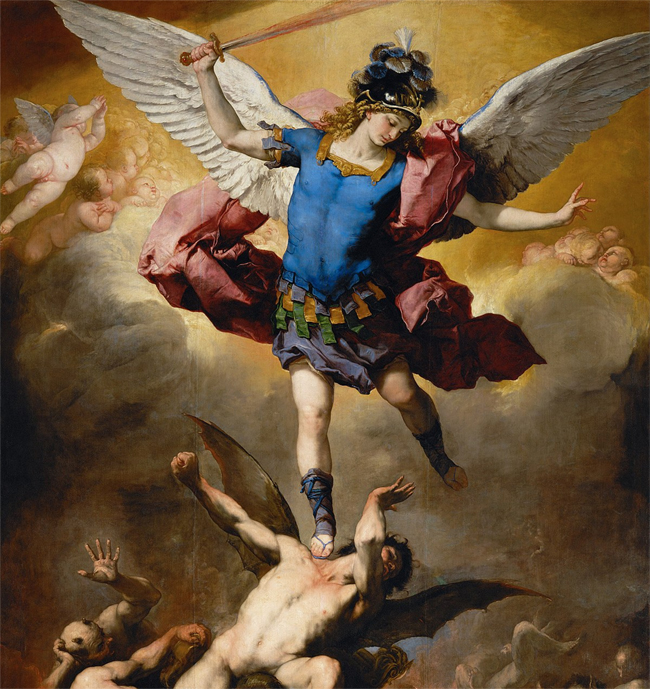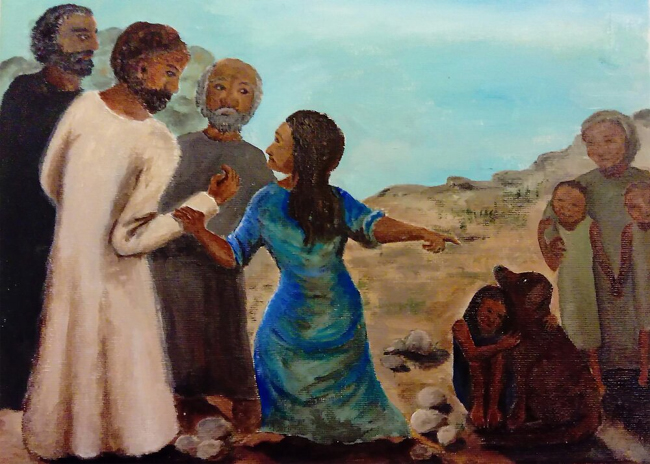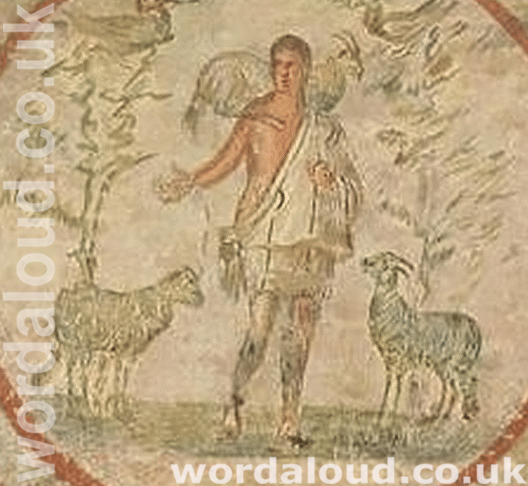Christian Art | George Herbert | The Temple | The Church | Repentance
George Herbert | The Temple | The Church | Repentance
Lord, I confesse my sinne is great;
Great is my sinne. Oh! gently treat
With thy quick flow’r, thy momentarie bloom;
Whose life still pressing
Is one undressing,
A steadie aiming at a tombe.
Mans age is two houres work, or three:
Each day doth round about us see.
Thus are we to delights: but we are all
To sorrows old,
If life be told
From what life feeleth, Adams fall.
O let thy height of mercie then
Compassionate short-breathed men.
Cut me not off for my most foul transgression:
I do confesse
My foolishnesse;
My God, accept of my confession.
Sweeten at length this bitter bowl,
Which thou hast pour’d into my soul;
Thy wormwood turn to health, windes to fair weather:
For if thou stay,
I and this day,
As we did rise, we die together.
When thou for sinne rebukest man,
Forthwith he waxeth wo and wan:
Bitternesse fills our bowels; all our hearts
Pine, and decay,
And drop away,
And carrie with them th’ other parts.
But thou wilt sinne and grief destroy;
That so the broken bones may joy,
And tune together in a well-set song,
Full of his praises,
Who dead men raises.
Fractures well cur’d make us more strong.
![]()

George Herbert | The Temple | The Church | Repentance
The poem explores themes of human frailty, sin, repentance, and divine mercy. The poem reflects on the brevity and vulnerability of life, contrasting human weakness with the power of God’s compassion. The poet, Herbert, begins by confessing the greatness of his sin and acknowledging the fleeting nature of human existence. The image of life as a ‘quick flower’ or ‘momentary bloom’ emphasizes this transience. Life is presented as something that is constantly ‘undressing’ or stripping away, ultimately leading toward death, which is depicted as the inevitable destination.
The second stanza reinforces this view of life as short and fragile. The comparison of human life to only ‘two hours’ work, or three’ underlines its brevity. While humans may experience fleeting delights, the weight of sorrows, symbolizing the consequences of original sin, persists. The phrase ‘Adam’s fall’ connects the human condition to the biblical fall, highlighting that all humanity shares in this inherited suffering and corruption.
In the third stanza, the poet appeals to God’s mercy, asking for compassion towards ‘short-breathed men’. The acknowledgment of his own ‘foul transgression’ and ‘foolishness’ forms the basis of the poet’s plea for forgiveness. The tone of this section is humble, Herbert recognizing his need for divine grace and intervention.
The fourth stanza shifts to a request for healing, asking God to ‘sweeten’ the bitterness that has been poured into the poet’s soul. The bitterness symbolizes Herbert’s suffering and spiritual anguish, which he desires to be transformed into health and peace. The imagery of the ‘wormwood’ (a bitter plant often associated with sorrow or suffering) becoming health emphasizes transformative power of divine mercy. Hebert also acknowledges inevitability of death, recognizing that both he and the day will pass together unless God’s intervention occurs.
In the fifth stanza, the poet reflects on the consequences of sin and the rebuke of God. Sin leads to a state of despondency, where bitterness fills the heart, and the physical body decays. The heart ‘pine[s] and decay[s]’ and both the emotional and physical aspects of the self begin to break down. This imagery of physical and spiritual disintegration underscores the damaging effects of sin on the entire being.
The final stanza, however, introduces a note of hope. The poet expresses confidence in God’s power to ‘destroy sin and grief’, restoring joy to what was broken. The image of broken bones being healed and joining together in harmony conveys the idea of spiritual renewal and wholeness after suffering. The ‘well-set song’ of praise refers to the restored harmony between the individual and God, suggesting that through repentance and divine forgiveness, the poet can be made stronger than before.
The poem is a meditation on sin, suffering, and redemption. It portrays human life as fragile and prone to error, yet holds out hope for healing and renewal through God’s grace. The poet’s journey from confession to hope reflects a deep spiritual process of repentance and the desire for divine restoration.

George Herbert | A Brief Biography
George Herbert (1593–1633) was a Welsh-born poet, orator, and Anglican priest, known for his deeply religious poetry and commitment to the Christian faith. Educated at Westminster School and Trinity College, Cambridge, Herbert excelled academically and was appointed a public orator at the University of Cambridge. Initially considering a career at court, he later chose the priesthood, influenced by his religious convictions.
In 1630, Herbert became rector of the small parish of Bemerton, near Salisbury. There, he served faithfully, focusing on pastoral duties and personal devotion. His brief life as a clergyman was marked by humility and service, though his health deteriorated quickly.
The collection of poems The Temple was published posthumously. On his deathbed, Herbert entrusted the manuscript to his friend Nicholas Ferrar, instructing him to either publish it or burn it, depending on whether Ferrar thought it would help others in their spiritual journey.








